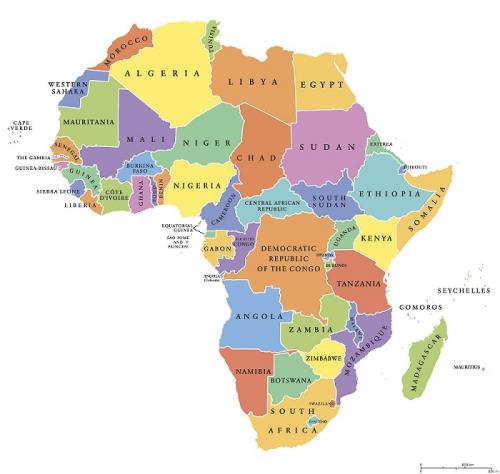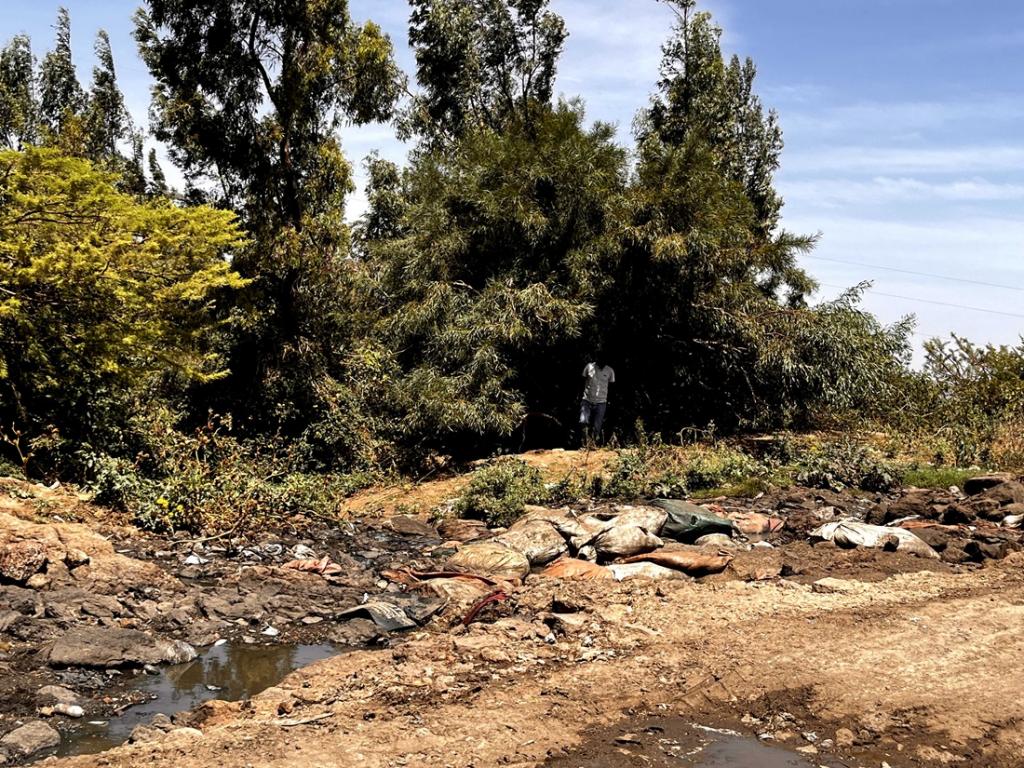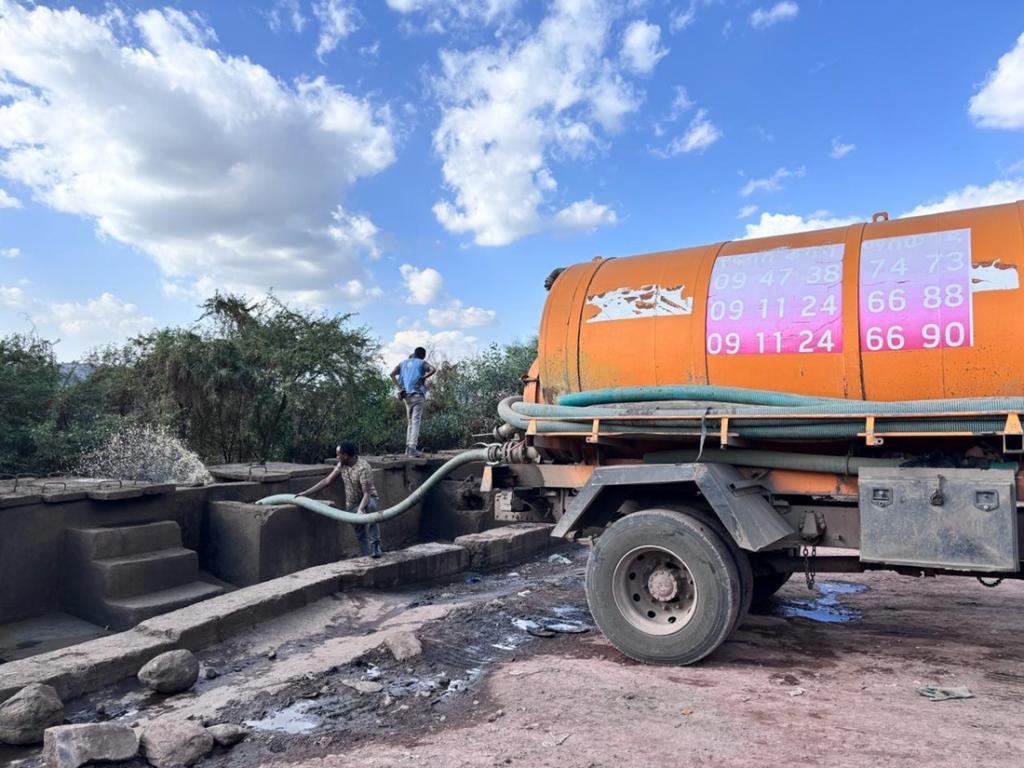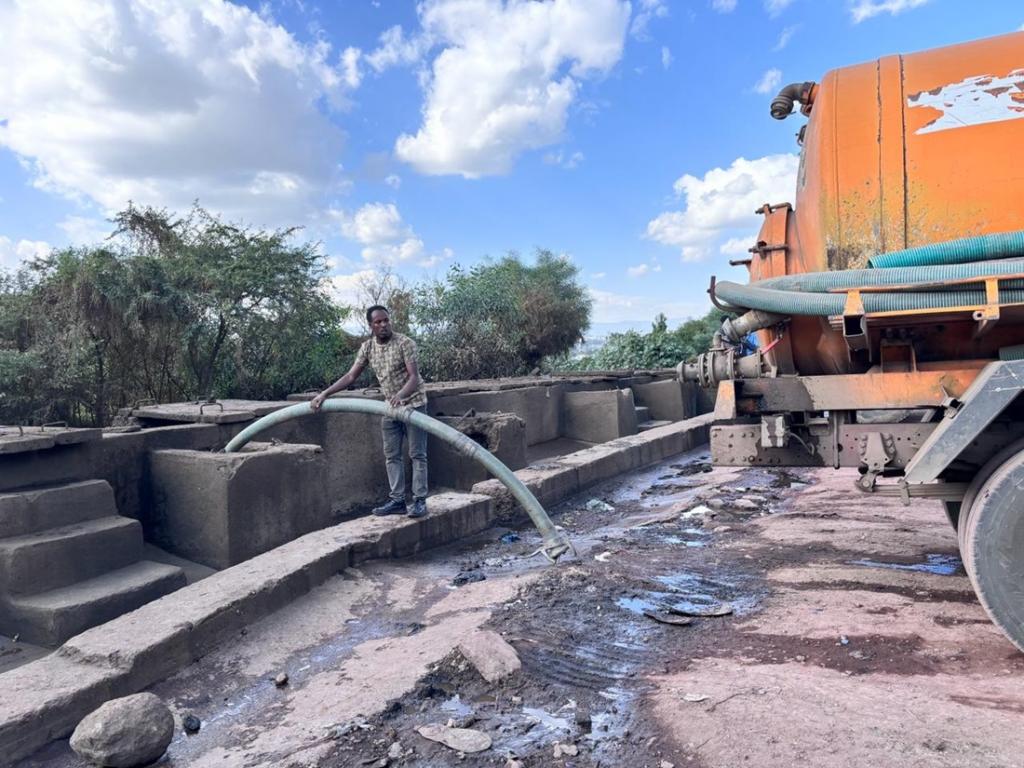Improving WASH is crucial for both public health and environmental sustainability in Africa’s second largest country
As emerging economies in Africa rise through the ranks in their sustained efforts to curb impoverishment, the issue of disparity looms large and Ethiopia is no exception. Africa’s oldest independent nation is also its second most populous country with almost 80 per cent of the population residing in the rural hinterland. With such contrast in population distribution, disparities of the rural-urban divide in Ethiopia seem to be most visible when taking account of basic amenities sanitation and people’s access to clean water.
Ethiopia’s rapidly expanding population and the rural-urban disparities fuel environmental degradation, threaten food and water security, and ultimately endangers the wellbeing of millions of underprivileged Ethiopians.
Water and sanitation in Ethiopia at a glance
Access to clean water is closely linked to sanitation. According to UNICEF, as of 2019, approximately 42 per cent of the population in Ethiopia had access to basic water services, which includes improved water sources such as piped water, boreholes, protected wells, and springs.
 A political map of Africa. Ethiopia is in the east of the continent. Credit: iStock
A political map of Africa. Ethiopia is in the east of the continent. Credit: iStock
The same source further mentions that approximately 28 per cent of the population had access to improved sanitation facilities. These improved sanitation facilities include flush toilets, ventilated improved pit latrines (VIP latrines), and improved sanitation facilities shared with other households (community and public toilets). As per the SDG indicator 6.2.1 in 2022, seven per cent of the population in Ethiopia uses a safely managed sanitation service. It also informed that 97 per cent of urban residents in Ethiopia rely on ‘on-site sanitation’. These types of toilets involve the collection, storage and/or treatment of the excreta on the plot where it is originally generated.
The United Nations highlights that significant progress has been made in minimising the prevalence of open defecation from 79 per cent to 22 per cent of the population. This translates as a total of 22 million people still defecate in the open in Ethiopia. Furthermore, 38 per cent of the rural population and seven per cent of the urban population continues to practice open defecation. Poor sanitation is a major cause of waterborne diseases such as diarrhoea, which is notably a leading cause of death among children under the age of five in Ethiopia.
In Ethiopia, the Ministry of Water and Energy (MoWE) plays a crucial role in ensuring safe water and sanitation for the citizens. As the leading agency responsible for managing water resources and sanitation, MoWE spearheads efforts to improve access to safe sanitation facilities and protect public health.
Wastewater and faecal sludge management in Ethiopia
Only 3 per cent of the total wastewater generated in Ethiopia is effectively treated. The capacity of urban centres to adequately treat wastewater is low, exposing natural water bodies to pollution, and posing a significant risk to human health and the environment. Poor personal hygiene and faecal contamination of the environment continue to be major contributors to child mortality, illness, under nutrition, and stunting.
Faecal sludge dumped in the designation dumping site without any treatment in Adama town

Photo Credit: Umra Anees
Addis Ababa, the capital city of Ethiopia, treats merely 0.43 per cent of the total estimated 398,985 m3/day of wastewater generated in the city. The situation is even worse in other large secondary cities: Mekelle (0.35 per cent), Bahirdar and Hawassa (0.22 per cent), Gondar (0.07 per cent), Dire Dawa (0.05 per cent), and Adama 0.41 (per cent).
In urban Ethiopia, the sanitation scenario varies significantly depending on the specific city or town. Generally, urban areas tend to have better access to sanitation facilities compared to rural regions, but challenges still exist, particularly in informal settlements and low-income localities.
Transfer of faecal matter from desludging vehicles into the treatment plant in Addis Ababa town

Photo credit: Umra Anees
There are a total of five Faecal Sludge Treatment Plants (FSTPs) in Ethiopia, of which only one is functional. These FSTPs are located in the capital city and in other major urban areas such as Bahir Dar, Mekele, and Adama. The capacity of these FSTPs is limited, and they are unable to meet the demand for faecal sludge treatment in the country.
The residents face accessibility issues for the desludging services as these are not adequately available and have long waiting periods as well as desludging fees. It is important to note that the country has no faecal sludge management policy or advisory for effectively treating the faecal sludge and reuse of the treated wastewater and biosolids.
 Photo credit: Umra Anees
Photo credit: Umra Anees
The lack of access to sanitation facilities in Ethiopia is due to several factors, including limited infrastructure, inadequate funding, and a lack of public awareness about proper sanitation practices. The rural areas in Ethiopia are particularly affected, with many households lacking access to basic sanitation facilities, such as toilets and hand washing stations. Addressing these challenges requires a coordinated effort involving government agencies, local authorities, communities, and other stakeholders.
A ray of hope
The Ethiopian government, in collaboration with international organisations and NGOs, has been taking measures to improve sanitation and provide access to clean water across the country. These efforts include infrastructure development, hygiene education programmes, and community-based initiatives aimed at promoting behavior change and improving sanitation practices.
Likewise, One WASH National Program aims to provide access to safe water supply and sanitation facilities in 307 Woredas (districts) in Ethiopia by 2030. This program includes plans to increase access to safe water to 98 per cent for rural areas and 100 percent for urban areas. Under the program, all Ethiopians will also be provided with access to basic sanitation and there will be an increased access to FSTPs in the country and promote the sustainable management of sanitation infrastructure. The One WASH programme involves an inter-ministerial collaboration between the Ministry of Water, Health, Education and Finance and Economic Development, as well as development partners.
Second Ethiopia Urban Water Supply and Sanitation Project funded by The World Bank aims to increase access to enhanced water supply and sanitation services in an operationally efficient manner in Addis Ababa and selected 22 secondary cities from all the regional states and the Dire Dawa city administration.
The World Health Organization has developed Guidelines for improving sanitation and hygiene in healthcare facilities in Ethiopia, while UNICEF has been working towards improving access to water and sanitation facilities in schools. The government and other partners need to continue improving sanitation in Ethiopia if the economy is to continue to grow.
In conclusion
Ethiopia’s sanitation challenges are closely linked to its rapid population growth. Its population has soared from 22.15 million in 1960 to 123.38 million in 2022. This marks a growth of a whopping 457 per cent in 62 years.
Addressing these issues requires a coordinated effort involving government agencies, local authorities, communities, and international organisations.
Improving water and sanitation access is crucial for both public health and environmental sustainability. Ethiopia has laid emphasis on adopting measures to solve the sanitation woes of the country and move towards effective wastewater and faecal sludge management. It now envisions a path to prosperity through ensuring integrated water resource management and ensuring access to drinking water, sanitation and energy supply to citizens by 2030.
Effective management and treatment of wastewater and faecal sludge, along with sustainable urban planning and infrastructure development, are essential steps toward lessening the adverse environmental impact and ensuring a healthier future for Ethiopia.
We are a voice to you; you have been a support to us. Together we build journalism that is independent, credible and fearless. You can further help us by making a donation. This will mean a lot for our ability to bring you news, perspectives and analysis from the ground so that we can make change together.
Source link : https://www.downtoearth.org.in/blog/africa/world-environment-day-2024-effective-faecal-sludge-management-can-help-address-sanitation-woes-in-ethiopia-96515
Author :
Publish date : 2024-06-05 02:53:27
Copyright for syndicated content belongs to the linked Source.





